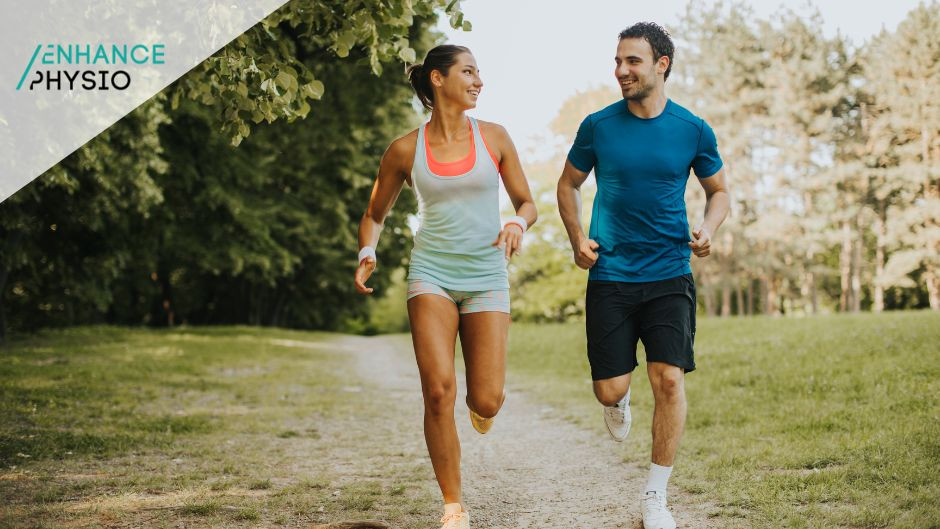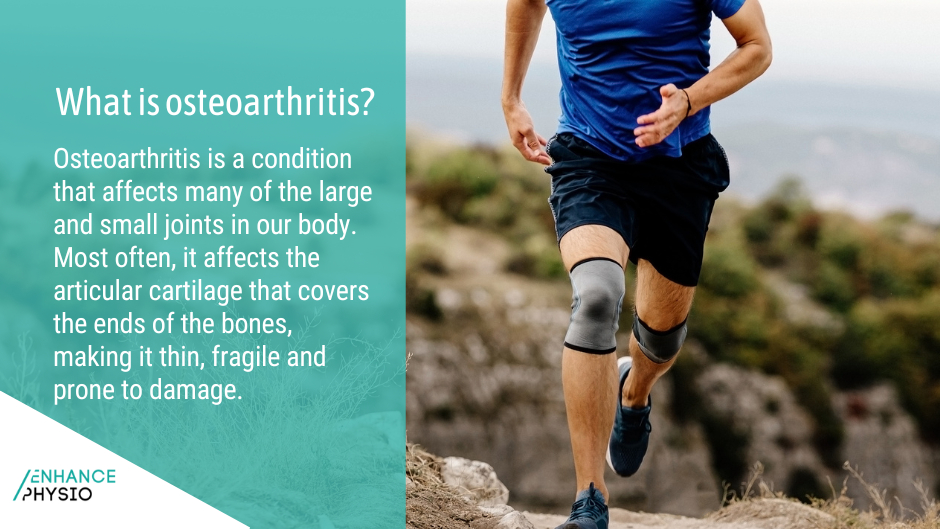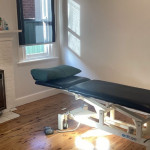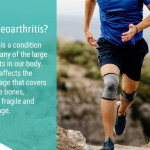Running and osteoarthritis: What you need to know?
Osteoarthritis is a degenerative joint disease that currently has no cure. However, there are many ways to reduce pain and improve function. Physiotherapy is one of the most effective ways to manage osteoarthritis.
Our highly qualified physiotherapists at Enhance Physiotherapy Wodonga can advise you on the best course of action for your osteoarthritis or physiotherapy solutions for tendon pain. In addition, regular exercise, especially running, can protect against the development of osteoarthritis in later life. Book an appointment with us today to get started on your rehabilitation program.
Physiotherapy can help prevent and treat osteoarthritis
It is a long-held belief that high-intensity activity, particularly running, is directly related to worsening knee osteoarthritis. As Physiotherapists, we often hear people mention that running “wrecked” their knees. As a result, many people are very reluctant to take up any form of similar high-intensity activity or participate in sports due to fear of incurring more “damage”.
But current research has suggested that a graded, progressive running program may provide a protective effect on the knees, preventing the development and progression of osteoarthritis.
What is osteoarthritis?
Osteoarthritis is a condition that affects many of the large and small joints in our body. Most often, it affects the articular cartilage that covers the ends of the bones, making it thin, fragile, and prone to damage. It is a prevalent condition, impacting up to 30% of people between 50 and 70 years in one or more joints. Commonly affected joints include knees, hips, feet, lumbar spine, neck, and hands.
Osteoarthritis is commonly described as “wear and tear” within a joint. However, this is incorrect. For a joint to remain healthy, it is essential to undergo sufficient load-bearing activity to keep cartilage healthy and sufficient rest to help the cartilage recover.
Where osteoarthritis becomes more likely, is when the load on the cartilage is significantly greater than the rest of deloading, and it cannot recover sufficiently. This can cause thinning and cracking of the cartilage, which can result in pain. There needs to be a balance between loading and deloading of the cartilage for a joint to be healthy.
Common risk factors for osteoarthritis
There are two categories of risk factors related to the development of arthritis; modifiable, or those we can change, and non-modifiable, or those we can’t.
Non-modifiable risk factors
- Female
- Age
- Family history of osteoarthritis
Modifiable risk factors
- Obesity
- Muscle weakness
- Physical inactivity
By focusing on reducing our modifiable risk factors and putting a healthy load through a joint, we can work to reduce the development and progression of osteoarthritis.
When we run, what happens to our joints?
The articular cartilage of the knee enjoys movement and the transfer of weight through the joint during activities such as walking and running. When pressure is applied to the joint, fluid is pushed out, and when the pressure is released, the fluid is sucked back in.
Regular exercise and movement aid in this process by keeping the joint nourished and healthy. If you are a runner and have been diagnosed with osteoarthritis, you should not be concerned that running will aggravate your condition; in fact, it has the opposite effect!
So how can running be good for knee osteoarthritis?
A 2017 Journal of Orthopaedic & Sports Physical Therapy study found that recreational runners had less chance of developing knee and hip arthritis compared to non-runners or sedentary individuals. It was concluded that running at a recreational level for 15 or more years may be safely recommended and improved overall health and positively affects hip and knee joint health. It was also noted that remaining sedentary and foregoing exercise increased the rate of hip and knee arthritis rate by up to 10% when compared with a graded, progressive running program.
When considering starting or resuming a running program, it is essential that you increase your distance, pace, and frequency of runs gradually to prevent injury and joint overload. Physiotherapists are highly trained in load management and load progression. We can assist you in developing a running program to help you meet your running goals while minimizing the impact on joints, muscles, and tendons.
Is running good if you have arthritis?
Without a doubt. Running is commonly thought to be bad for your knees. A study that followed participants with knee arthritis for four years discovered that running did not worsen their symptoms or increase the signs of arthritis seen on an x-ray. In fact, the study’s participants discovered that running relieved their knee pain.
A study that followed runners and non-runners for 18 years discovered that runners did not have more signs of arthritis in their knees than the non-runner control group.
This does not imply that everyone suffering from arthritis can run. Everyone is built differently, and our bodies respond to exercise and running differently.
Final thoughts on running and osteoarthritis
Currently, no cure for osteoarthritis is available, but many measures can be taken to slow down its effects, reduce pain and improve or maintain current function.
Exercise is an important part of preventing and treating osteoarthritis, especially in people over the age of 65.
Knee and joint pain are common complaints among runners, but the chances of arthritis being the cause are slim.
Several studies have found that regular running strengthens the joints and protects against the development of osteoarthritis later in life.
Book an appointment with one of our highly qualified physiotherapists at Enhance Physio before starting a rehabilitation program. We can advise you on the best course of action for your condition.
Enhance Physio provides services in Wodonga Physiotherapy
Wodonga is a quaint Australian city that sits on the Victorian side of an international border with New South Wales, 300 kilometers northeast of Melbourne. This tranquil little town has all you need for your perfect getaway: plenty to see and do in both cities and country living; great local food and wine; and all the peace, quiet, and relaxation you could want.
Enhance Physio is only a few minutes away if you live in Wodonga and seek Physio Wodonga. Contact Enhance Physio at (02) 6060 2403 or book a consultation online, and let us help you with your tendon pain or any other issues related to your health.


































